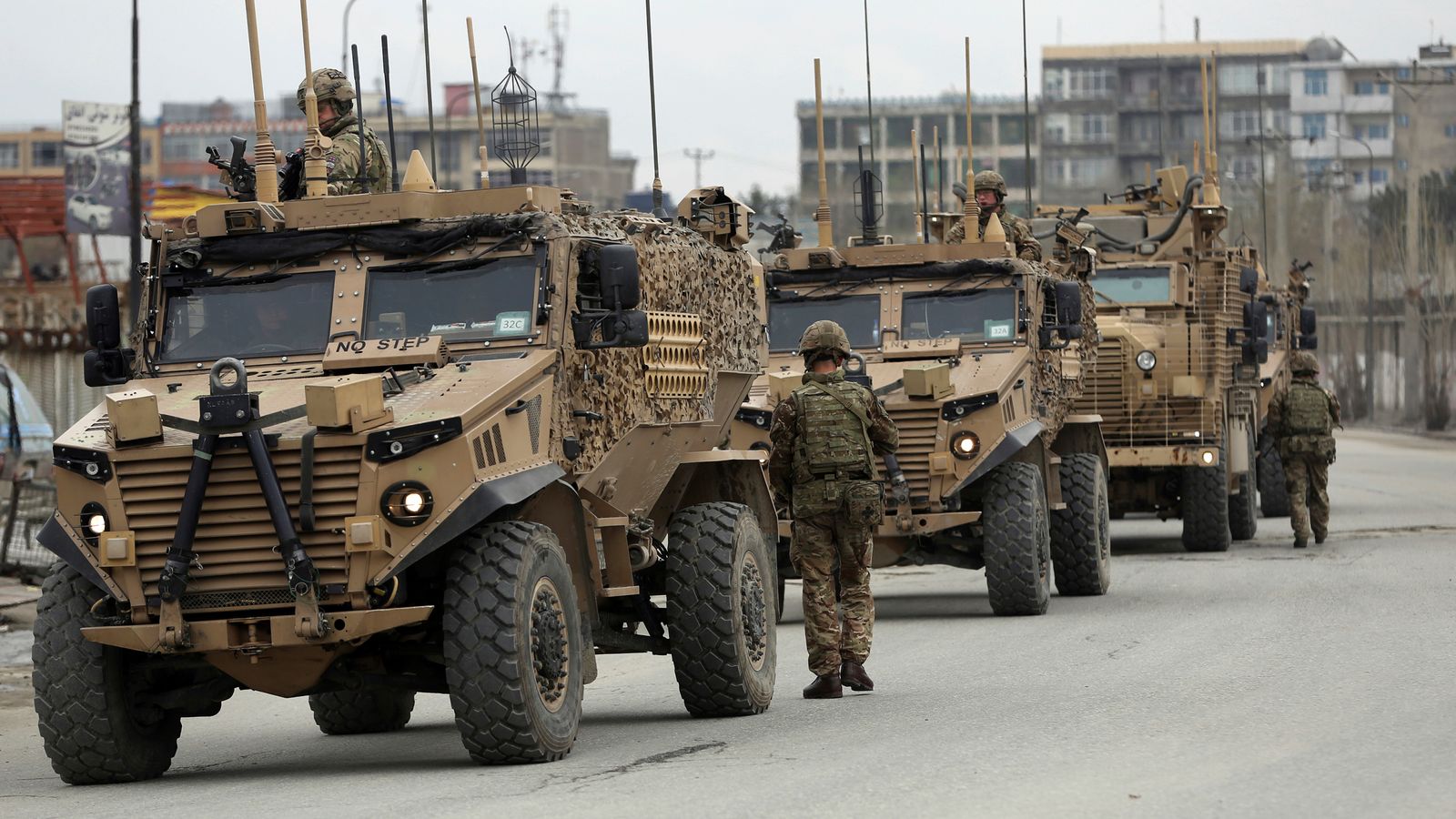Dozens of top British commanders have urged Boris Johnson to immediately expand a scheme to allow former Afghan interpreters to resettle in the UK.
In an open letter to the prime minister, they warned if any of the UK’s former interpreters or other staff are murdered by the Taliban as British and other NATO forces withdraw from the country “the dishonour would lay squarely at our nation’s feet”.
Five former heads of the armed forces were among the signatories as well as two former heads of the army.
The letter said a policy announced by the government in May to widen a resettlement scheme to include many more former interpreters and other staff – while a step in the right direction – did not go far enough.
It revealed that the applications of anyone who had been sacked from their job as an interpreter – a process that the former military chiefs said happened “without any due process or ability to appeal” – were being rejected.
Some 35% of all former interpreters and other employees who worked for the British operation in Afghanistan were dismissed. However, many still face death threats from the Taliban, which views anyone who worked for the British or other NATO forces as a traitor.
“The policy is not being conducted with the necessary spirit of generosity required to protect our former colleagues from an indiscriminate and resurgent Taliban,” the letter said.
“Put simply, far too many applications are being rejected.”
The military chiefs suggested the only reason a person should be prevented from moving to the UK with their family under the Afghan Relocation and Assistance Policy is anyone who has committed an offence that poses a threat to national security.
Please use Chrome browser for a more accessible video player
“We urge the government to act immediately. Time is of the utmost essence to save the lives of those who served alongside our servicemen and women in Afghanistan and who saved countless British lives.”
Among the 45 signatories to the letter were four chiefs of the defence staff, who served between 2001 when the war in Afghanistan was launched, and 2016. They were Admiral of the Fleet The Lord Boyce, Marshal of the Royal Air Force The Lord Stirrup, General The Lord Richards of Herstmonceux and General The Lord Houghton of Richmond.
Marshal of the Royal Air Force The Lord Craig of Radley, who was military chief between 1988 and 1991, also added his name.
Two former army chiefs also signed up General The Lord Dannatt, who was chief signatory, and General Sir Peter Wall.
A spokesperson for the Ministry of Defence said: “Nobody’s life should be put at risk because they supported the UK government to bring peace and stability. We are the only nation with a permanent expert team based in Kabul to investigate claims from courageous local staff who are threatened as a result of their work with the UK.”
It’s only a matter of time until the government again changes course
Analysis by Deborah Haynes, foreign affairs editor
The UK government has come under pressure from its own troops to support Afghan interpreters who served with the British military for more than a decade over fears that their lives were at risk from the Taliban.
At first Britain resisted the calls, arguing that relocating interpreters would deprive Afghanistan of some of its “brightest and best” at a time when the UK and its allies were trying to help the nation rebuild.
That policy has had to changed over time and as pressure from current and former members of the armed forces grew.
At first a scheme was announced that would help interpreters who served on the frontline for at least 12 months. It was heavily criticised for missing out many who had not served during the correct time period.
That policy evolved over time until a new, far more generous scheme, was finally unveiled in May of this year.
However, as this letter reveals, it too does not go far enough and hundreds of former interpreters and other staff who were dismissed during their employment or who perhaps working for the UK forces indirectly via a third party employer remain ineligible.
As the security situation in Afghanistan continues to deteriorate and pressure mounts to moderate the rules further, it must only be a matter of time until the government again changes course and offers these remaining former interpreters a sanctuary.






















